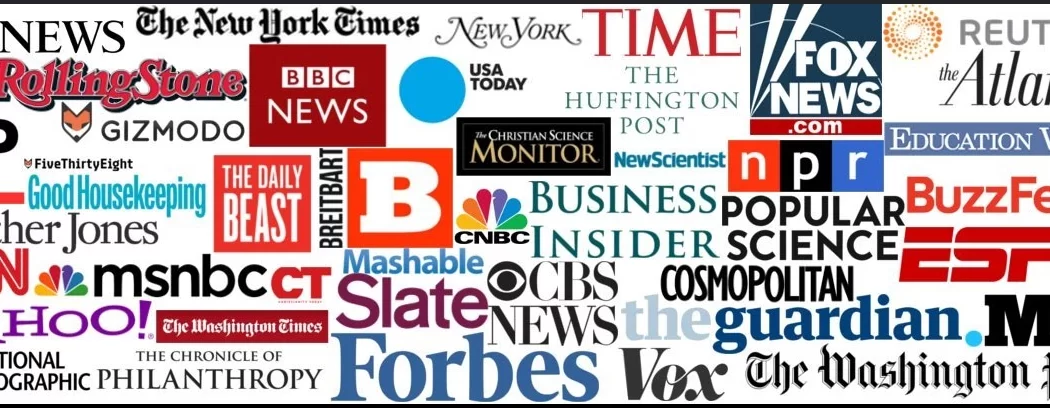The lies around Syria and the Syrian war have comprised a landslide of confusion and misinformation in the public. The mainstream media has turned the truth about events in Syria over and over again.
by Paul Larudee, first published on Dissident Voice, July 21, 2023
In war, truth is the first casualty.
— Aeschylus, Greek tragic dramatist (525 BC – 456 BC)
How many of us learn about Russia from a Russian point of view? Or about Syria from a loyal Syrian? Or Cuba from a Cuban supporter? Or Iran, Nicaragua, North Korea, China or many others on our current list of adversaries, from the point of view of those adversaries? We supposedly pride ourselves on listening to both or many sides of an issue before forming an opinion (or, better still, a sound analysis). It’s the core of our system of justice, however flawed. It’s why we value free speech.
It’s not that the viewpoints we commonly hear are not different from each other, or that we don’t hear from people with foreign accents from the parts of the world in question. It’s that mainstream news, information and analysis are from a very narrow spectrum. The differences in the viewpoints are in the details, not the fundamentals. In the case of Ukraine, for example, the differences are mainly about how, and how much, to support Ukraine, not whether to do so. Do we hear the Russian view that they were compelled to come to the rescue of Ukraine’s Russian population, which was being massacred by racist, pro-Nazi elements running the Ukrainian government and supported by NATO? Not from the mainstream news, we don’t.
Similarly, when we hear from nationals of adversary countries, our media rarely offer space or air time to persons who represent the adversarial point of view. We are rather more likely to hear from exiles seeking to overthrow the government and hoping for western support. When have we heard from a representative of Hezbollah or Hamas? Or of the government of China or North Korea, or the Sandinista government of Nicaragua? The point is not whether their point of view is correct or whether we decide that it’s reasonable or not, but rather whether we even know what it is, and whether we try to understand it. Isn’t that what we’re supposed to do in order to negotiate with our adversaries, solve our differences and achieve peace? The closest we come to that in our media is to invite such representatives to an on-air ambush where we browbeat them and shout them down instead of listening to them.
But it’s worse than that. Our vaunted “free press” closes down the offices and facilities of journalists from countries or movements selected for vilification, and blocks their websites within the boundaries of our country. Thus, the Russian RT media channel and the Iranian Press TV, among others, are no longer permitted to operate within most western countries. Apparently, their words are considered hazardous to western ears. Similarly, many journalists and other individuals have found themselves banned from western-based social media for revealing unwelcome facts or contradicting official truth. Many have been banned from Facebook, Twitter, YouTube and other platforms.
It’s not just censorship, either. Our journalistic media have been taken over by advertising and PR principles, going so far as to fabricate stories and substitute lies for the truth on a massive scale. Even “fact checking” has become the province of distortion, where the “authorized” version of events has displaced actual facts. The mainstream media remove journalists who tell too much truth, contradicting the lies. The New York Times “disappeared” war correspondent Chris Hedges for reporting on war crimes committed by Israel and similar news. Aaron Maté and Max Blumenthal used to report their investigative journalism on Democracy Now, which has now ceased inviting them, in order to become more of a mainstream outlet. Pulitzer Prize winner Seymour Hersch migrated from The New Yorker and the New York Times to foreign media and eventually alternative outlets as his investigative journalism began to cast doubt on mainstream accounts of the Syrian war, the death of Osama Bin Laden, the destruction of the Nordstream gas pipelines and other events. Julian Assange is paying the highest price for publishing a modern-day equivalent of the Pentagon Papers, originally published by a younger, more courageous New York Times.
Sadly, many members of the public consider themselves well-informed and openminded if they read the most prestigious U.S. newspapers, watch or listen to the BBC and Deutsche Welle, and subscribe to Asia Times. To the extent that this may have been true in the past, it no longer is. Today, the ownership and funding sources of the major news media are all oligarchs and powerful corporations. Their job is no longer to inform the public, but rather to inculcate them with whatever information and ideas will manufacture consent for the policies that the powerful wish to enact. And no more, please.
This explains the actions of those who rule us, who are not just the elected leadership. In fact, even the elections themselves are limited to candidates selected by the powerful interests, and centered upon a few issues that do not threaten those interests (e.g. abortion and civil rights), and where the campaigning takes place almost exclusively in the few “swing” states that will determine the outcome of the election. As Emma Goldman said, “If voting changed anything, they’d make it illegal.”
If we want to be worthy of calling ourselves educated, we cannot depend solely upon the mainstream press; we will have to do a lot of the work ourselves. There is bias in all media, but we can expose ourselves to opposing biases in order to get a wider variety of facts and analyses, and form our views accordingly. We have choices, if we only seek them out. The biases of Yahoo and Google are different from those of Russian and Chinese search engines. If we don’t find what we’re looking for on one, we might find it on another. The same is true with social media. Telegram is becoming increasingly popular, especially with those who have been banned elsewhere. Substack.com is a website that thus far has accommodated most subjects and viewpoints. Many of the journalists who are less than welcome in the mainstream media can be found at serenashimaward.org, a project that rewards journalists who present alternate views and information (and for which I am proud to serve as Treasurer). Due diligence is worth the rewards.
 Syria Support Movement solidarity with the Syrian people
Syria Support Movement solidarity with the Syrian people





